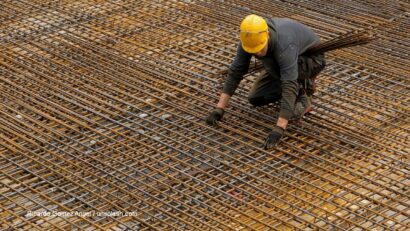Women in the media and the IT sector
EU statistics say that women continue to be poorly represented in the IT and mass media

Christine Leșcu, 21.03.2018, 13:04
EU statistics say that women continue to be poorly represented in the IT sector and mass media, though some progress has been made in this respect in recent years. However, the statistics point to certain differences separating Romania from other EU countries. In many European countries, there are more women journalists than men. However, less women journalists than men hold management positions. For instance, on an average, at a European level, in 2015, 48% of women reporters and senior producers worked in television, 40% were broadcast journalists and 34% worked in the print press. Nevertheless, 38% of women had management positions in mass media and only 36% held top positions.
According to a survey conducted by the Global Media Monitoring Project (GMMP) every five years, in 2015, though 80% of the graduates of relevant faculties were women, only 35% of them worked in the print press, radio and TV, and only 38% were active on the news sites. However, an improvement was noted as against the GMMP report of 2010, not necessarily in terms of the number of news and broadcast producers, but rather in terms of their content, says Oana Baluta, a female activist and associate professor at the Journalism School of the University of Bucharest:
Oana Baluta: “There is a symbolical annihilation in mass media: less women work in mass media than men. When they do work in this sector, women are often trivialized, even those holding managerial positions. We take more interest in a woman managers hairdo than in her professional performance or resume. Another problem is that the mass media tends to reinforce stereotypes regarding women. Interestingly, mostly men are interviewed as experts or invited as guests in various talk shows, indicating where the power of expertise and knowledge is thought to lie. Women are generally invited when social issues are addressed. All those problems should be food for thought.
Similar findings are presented in a complex report on equal opportunities for men and women in six key areas and two adjacent ones. Oana Baluta believes that there are no flattering results regarding Romania in the EU Gender Equality Index:
Oana Baluta: “According to the European Gender Equality Index, Romania is at the bottom of the EU ranking in terms of gender equality. The Index measures gender equality in several domains such as knowledge, education, power and time. For instance, the extent to which women and men have access to free time, given that apart from working, women also do house chores and take care of children.
This is the overall picture, but a closer look at some segments shows that at present, the Romanian Government is headed by a woman, and 8 other ministries are also led by women. In Romania, only 5% of women earn less than men in similar positions, as compared to the European average of 16%. Furthermore, in IT, a sector which is increasingly connected to the mass media, Romanian women are better represented than most European women. According to data released by Eurostat, the proportion of Romanian women specialists in the field stands at 27%, as against to the 16% EU average, our country ranking second in Europe, after Bulgaria and ahead of Latvia. However, in this sector, too, women are under-represented at European level, MEP Claudia Ţapardel concludes:
Claudia Ţapardel: “As regards the advantages offered by the IT&C domain, women only benefit from one-third of these advantages. Also, there is an alarming trend at European level, namely that many of the ladies who are already active in the field will later in their career give up their work in this domain and embrace another one. This happens at a time when the European Commission forecasts that, by 2020, there will be a deficit of 1,000,000 IT&C experts in Europe. In another field associated with the IT industry, namely science and engineering, only one-fifth of management positions are held by women.
In order to reduce gender gaps on the labour market, Romania intends to introduce a new job, in accordance with the international legislation that our country has already adopted. Graţiela Drăghici, the President of the National Agency for Gender Equality, has more:
Graţiela Drăghici: “The gender equality expert job is an instrument that we make available to Romanian society and all public and private entities. A new bill regulates the possibility for all public and private entities with more than 50 employees to identify an employee who can be assigned the position of gender equality expert, or to hire one from outside the respective institution or firm. This is not mandatory, we only sought to offer an instrument without imposing an obligation. This instrument has a high potential of promoting the issue of gender equality in society.
The draft law meant to regulate the position of gender equality expert has already been passed by the government and is to be debated in Parliament.
(translated by: Ana-Maria Palcu, Diana Vijeu)






























